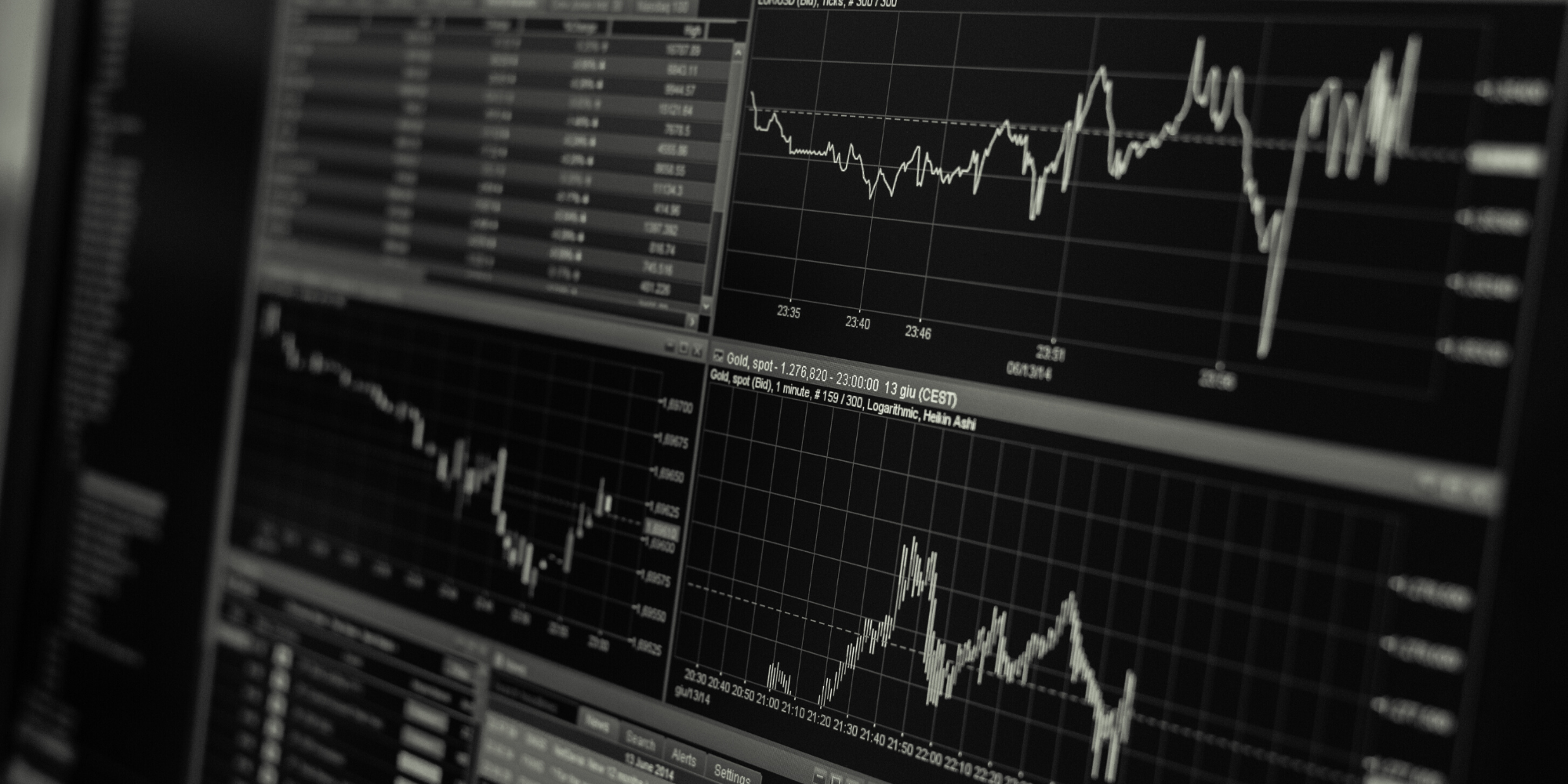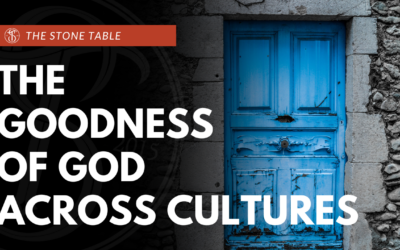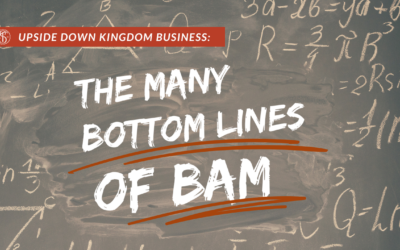There’s a scene in the iconic Frank Capra classic, It’s a Wonderful Life, where George Bailey fights off a run on the Savings and Loan. In the chaos that ensues, Bailey successfully talks down a lobby full of panicked customers demanding the immediate withdrawal of their cash by helping them understand one aspect of basic economics. As he explains, the Savings and Loan is not some independent entity in and of itself, it’s actually the interdependent connection of the lives of everyone in the community. Here’s how the dialog unfolded:
“You’re thinking of this place all wrong. As if I had the money back in a safe. The money’s not here. Your money’s in Joe’s house…right next to yours. And in the Kennedy house, and Mrs. Macklin’s house, and a hundred others. Why, you’re lending them the money to build, and then, they’re going to pay it back to you as best they can. Now what are you going to do? Foreclose on them?…Now wait…now listen…now listen to me. I beg of you not to do this thing.”
I’m going to try and do my best George Bailey impersonation today. In the completely understandable chaos created by this global Coronavirus outbreak, it seems we need some clarity about this thing we call “the economy.” I hear a lot of phrases thrown around like:
- We’ve temporarily shut down “the economy.”
- We need to reopen “the economy.”
- Don’t you care about people? All you talk about is “the economy.”
But “the economy” is not some inanimate object that exists in and of itself, the economy is people. In its simplest form, the economy is the intertwining of human lives in mutual service to one another.
A Powder Keg Conversation
A few weeks ago, I waded into this discussion to my own peril. In a short Facebook post, I tried to convey the very human and sacred nature of the economy as a backdrop to this horrific Coronavirus outbreak. It was greeted with both cheers and disdain (which seems to be the binary hallmark of our modern world). Some thanked me for saying it, others accused me of idolizing capitalism and hating old people.
I normally try to keep my social media presence controversy-free, but Coronavirus has changed the rules. Our sweet spot at The Stone Table is the intersection of the marketplace and God’s mission in the world, so when the global economy effectively goes on hiatus, entrepreneur friends start losing their businesses, and countless employees are furloughed and sent to the unemployment office, we want to talk about it.
A Few Caveats
But for all those who will not read past the headline, I’m going to try and make a few things clear upfront:
- I’m not suggesting COVID-19 isn’t a real and very serious health problem. I have two personal friends in the ICU right now fighting for their lives.
- I’m not suggesting a timeline for when the economy should reopen. That’s above my pay grade, but I do pray it is sooner than later.
- I’m not suggesting we pick a fight with science. It was my worst subject in high school.
- I’m not suggesting that our often misplaced trust in comfort, wealth, and security should not be challenged. Idolatry of any kind is a sin.
With that behind us, I am suggesting that when we talk about “the economy,” we must clearly understand what it is we are talking about, especially as Christians. The economy isn’t impersonal. When we talk about Coronavirus statistics, we’re talking about people. When we talk about the economy, we’re also talking about people. It should not be morally questionable to say you care about the economy. Those who pit these two things against one another either don’t understand economics or have an ulterior motive.
Economic Idolatry
When critics push back on concern for “the economy,” what they’re likely pushing back on is economic idolatry. An Idol is anything we find our identity in, anything we place our ultimate hope and trust in outside of God Himself. We humans are idol-making machines, and there is no doubt plenty of us have become worshippers of economic comfort and prosperity, especially in Western cultures and contexts.
But the things we idolize aren’t usually evil in and of themselves. In fact, Tim Keller says idolatry is turning good things into ultimate things. I know women who idolize their children, yet it would be odd to argue that motherhood itself is problematic. The object of our idolatry is rarely the issue, it’s the misuse or misplaced adoration of these things that becomes sinful.
When some hear conversations about “the economy,” I think they envision the nefarious Gordon Gekko from the 1980s film Wall Street. Michael Douglas’s infamous character coined the phrase that many still use to define American excess: Greed is good.
Like Gecko, many modern-day films and TV shows feature “big business” antagonists, powerful people leveraging the marketplace to take advantage of the little guy or wreak havoc on the environment. That triggers our sense of injustice. So for many, “the economy” has subliminally become synonymous with the love of money and power, corporate greed, and the rich guy coveting a new vacation home in the Hamptons.
But we can’t define the marketplace by its sinful expression any more than we can ascribe that same broken storyline to government, science, education, healthcare, or any other sphere of life. Everything is marred by sin, but everything also has an original design.
The Sacred Intertwining of Human Lives
When people express concern for the economy, they’re not inherently talking about rich people and their retirement accounts. We have to see clearer than the caricature.
At its root, the economy is the sacred intertwining of human lives in mutual service to one another. It’s about image-bearers leveraging their unique makeup and God-given giftings to meet a need in someone else’s life. The economy is about mutual service, interdependence, people serving and adding value to one another. The economy is a means by which we can live out the Great Commandment, to worship God and love our neighbor.
Is it broken by sin? Absolutely. Everything is. But we can’t allow the sinful expression of the marketplace to define its true, sacred design.
There’s a reason business and entrepreneurship are being used as a missions strategy all over the world today. Good business fosters relationships and human connection, it leaves people with more together than they could ever have had separately, and that is a beautiful conduit for the Gospel.
Economics Is About People
Do I believe this pandemic has exposed our idolatry of economic comfort and prosperity? Absolutely. And God often uses suffering to show us the futility of all the places we’ve rooted ourselves outside of Him. For that, we all need to repent and return to Jesus. And right now, we need to love one another, especially the most vulnerable among us, by social distancing and honoring our authorities.
But the day will come (maybe sooner than later) that we need to love one another by determining how best to wisely get back to work. When people talk about this, it isn’t an inherently selfish discussion. It is possible to simultaneously care deeply about the people who are getting sick and to care deeply about the people who are losing their jobs and businesses from the economic shutdown. Don’t buy into a false dichotomy. “The economy” is the vital, people serving, human flourishing, intertwining of lives in mutual service to one another. That’s a sacred thing.
It’s okay to say you care about the economy.
I don’t envy those who are leading us through this crisis. Let’s remember to pray for them, regardless of their political affiliation, and for all the people who are suffering through this difficult moment in human history. Lord have mercy.




